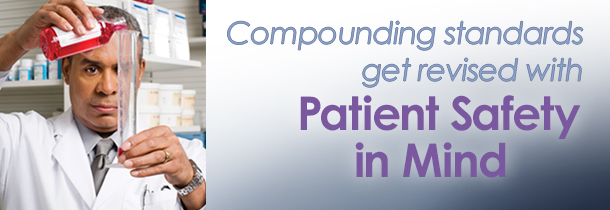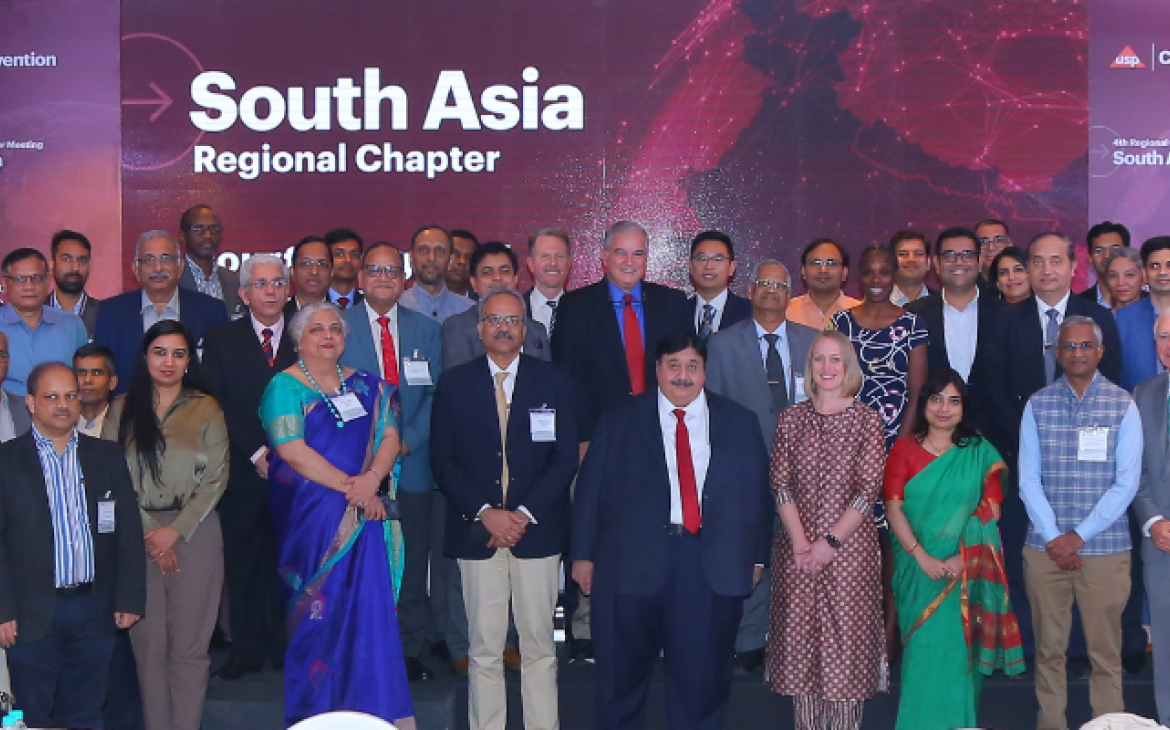
By: Gigi Davidson, R.Ph., DICVP, Director of Clinical Pharmacy Services, North Carolina State College of Veterinary Medicine; Chair, USP Compounding Expert Committee
As a long-time volunteer for USP—which has developed standards for compounding practitioners since 1820—I witness how the organization is in constant review of their quality standards for medicines, foods and dietary supplements. I was elected Chair of the Compounding Committee in 2010 (to understand how Expert Committees work at USP, click here) and one of the first charges of this committee was to revise <797> Pharmaceutical Compounding—Sterile Preparations, considered by many the most comprehensive standards on sterile compounding.
When speaking about compounding, one can’t help but remember the 2012 fungal meningitis outbreak connected to the New England Compounding Center (NECC), which has tarnished the image of compounding pharmacies throughout the country. Even though <797> was recognized under Massachusetts state laws, the NECC tragedy brought to light that standards for safe compounding do exist, but their enforcement may be inconsistent. So, while not in response to the NECC tragedy, <797> was revised having patient safety in mind, by making the standards for compounding sterile preparations as clear as possible to practitioners.
I have to say this had to be one of the most challenging but rewarding projects to which I had the honor to contribute. The expert committee itself consisted of professionals with diverse backgrounds, but we also sought additional expertise by forming an Expert Panel in 2013. The Expert Panel was charged with taking a fresh look at the chapter from beginning to end and making recommendations for improved clarity and responding to stakeholder input. Among the experts we collaborated with in the Expert Panel were compounding practitioners, educators, infection control specialists, industrial hygienists, environmental engineers, nuclear medicine specialists, microbiologists, surveyors and industry experts. We also partnered with USP’s Expert Committee on Microbiology for their expertise in sterility testing and sterility assurance.
Additionally, eleven government liaisons, from the U.S. Food and Drug Administration (FDA) and the Centers for Disease Control (CDC), significantly contributed to the revision and reorganization of <797>. They have all provided a fresh perspective on the chapter and helped tailor its language to make it clearer to users and regulators.
As a user of <797>, I encourage you to get involved in USP’s the standard-setting process and comment on the revised chapter, which was pre-posted for public comment on September 25, 2015. It’s the best way to have your voices heard and your concerns addressed to ultimately benefit your patients and the practice of compounding.
For more information on the chapter and for instructions on how to comment on the proposal: <797> Pharmaceutical Compounding—Sterile Preparations
For comments and questions, please email: CompoundingSL@usp.org.


